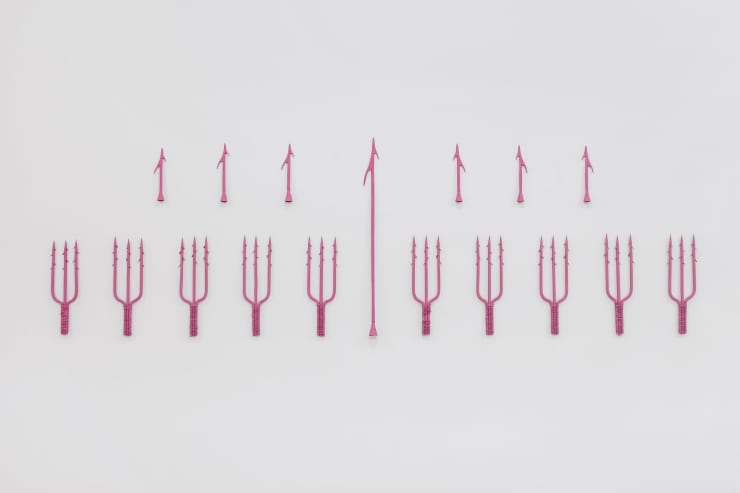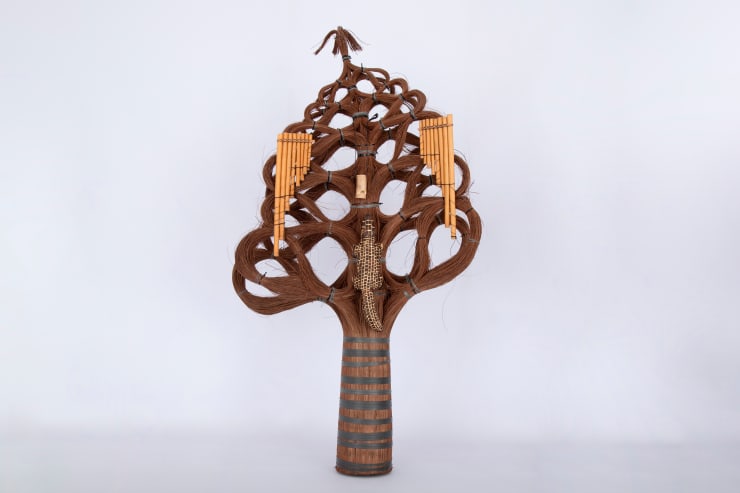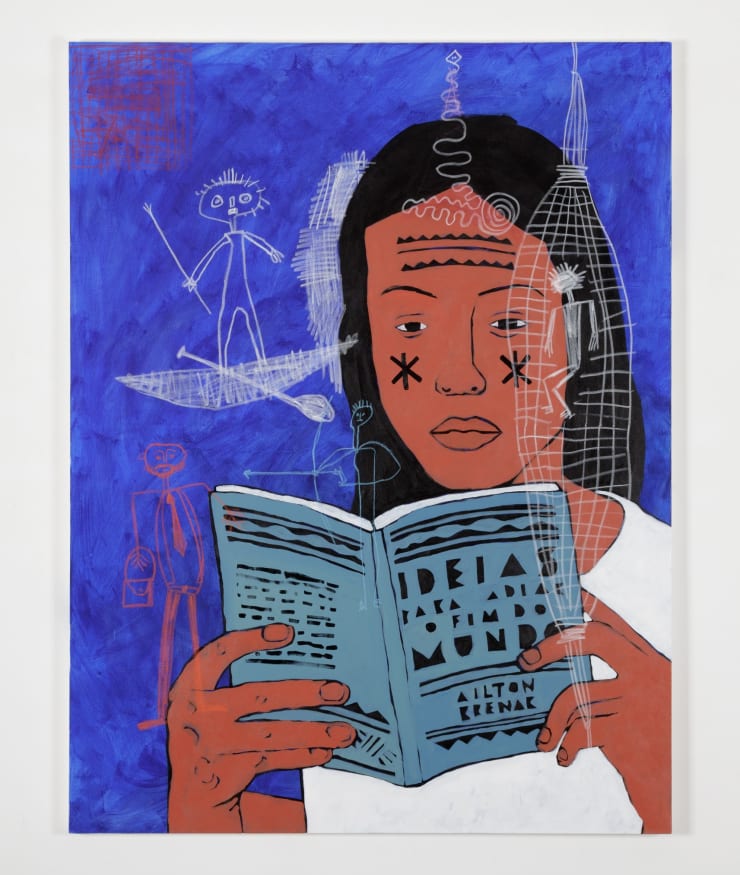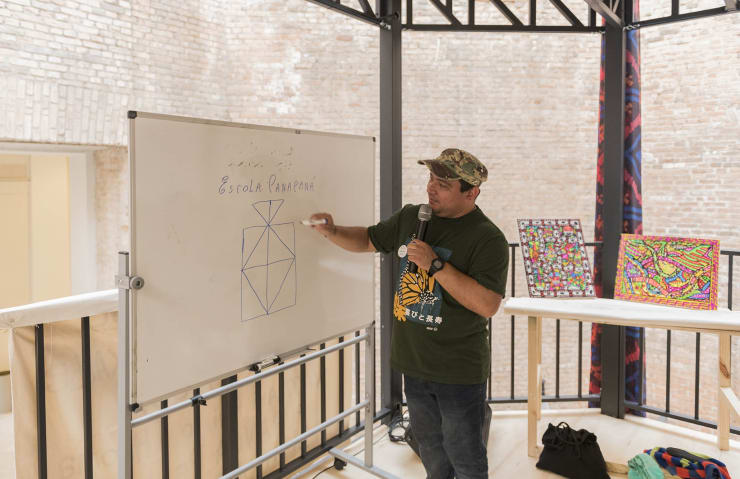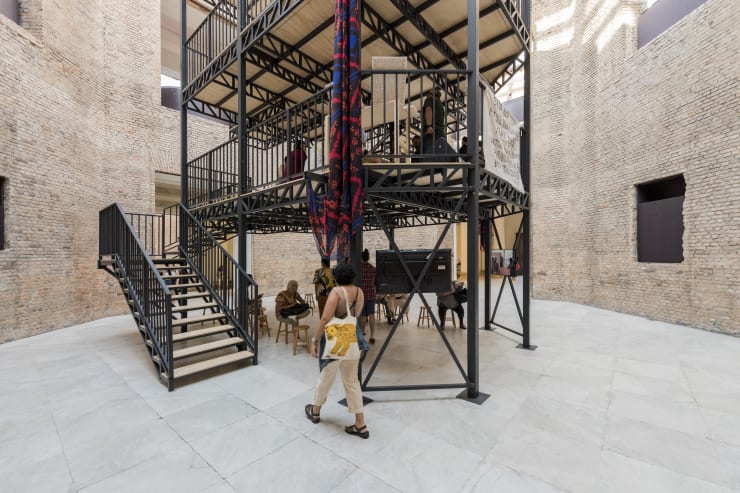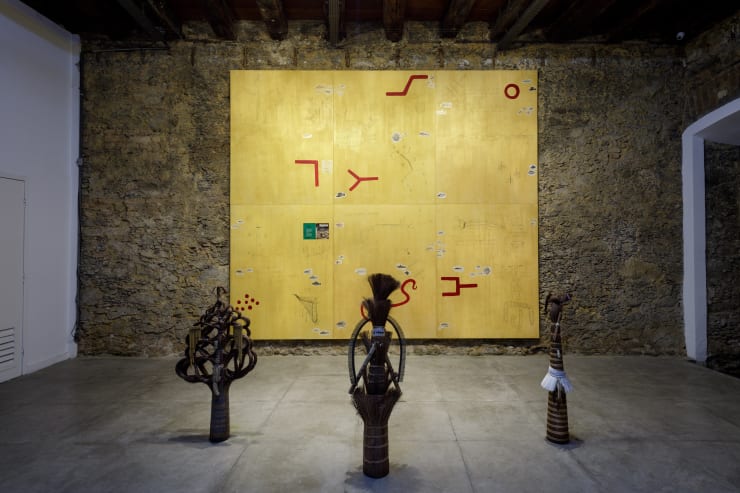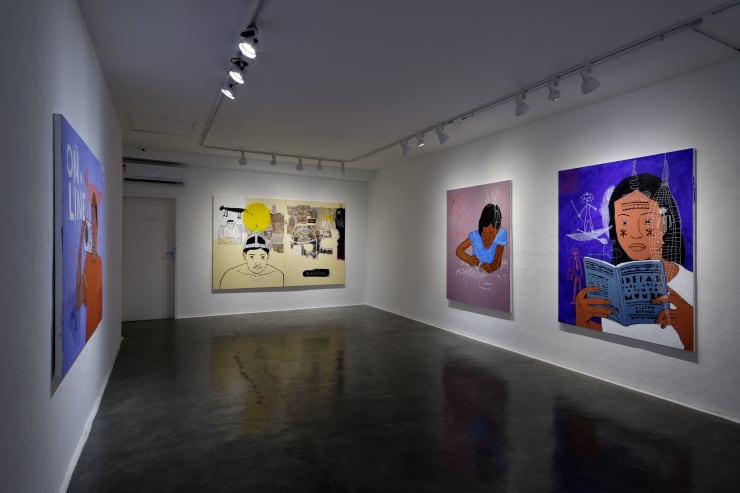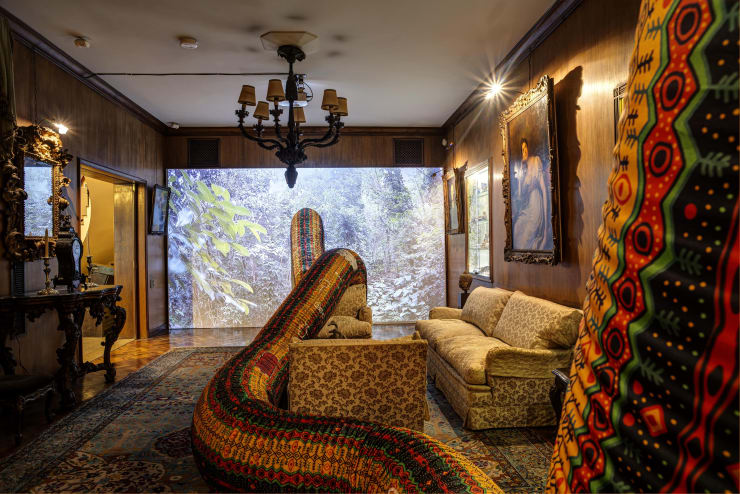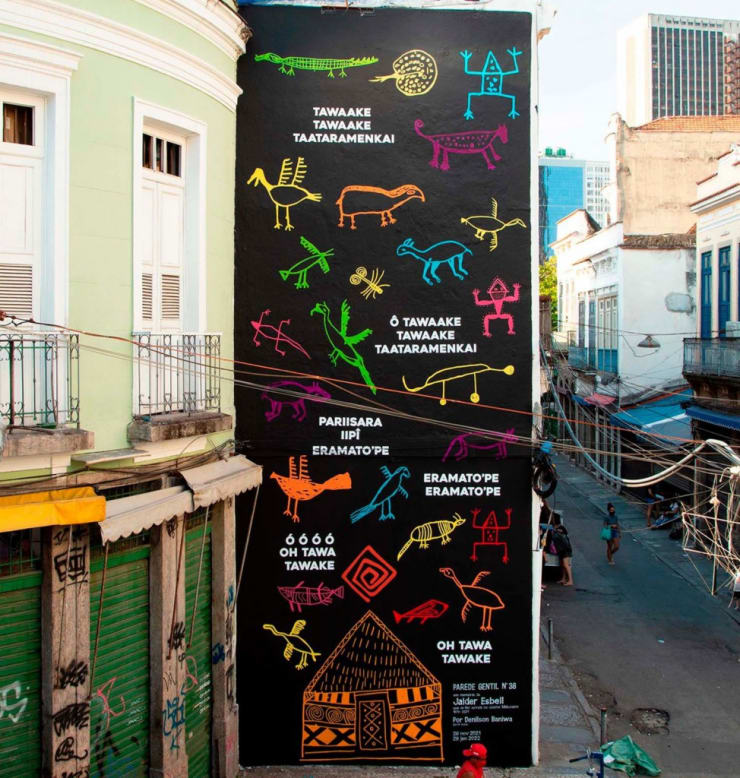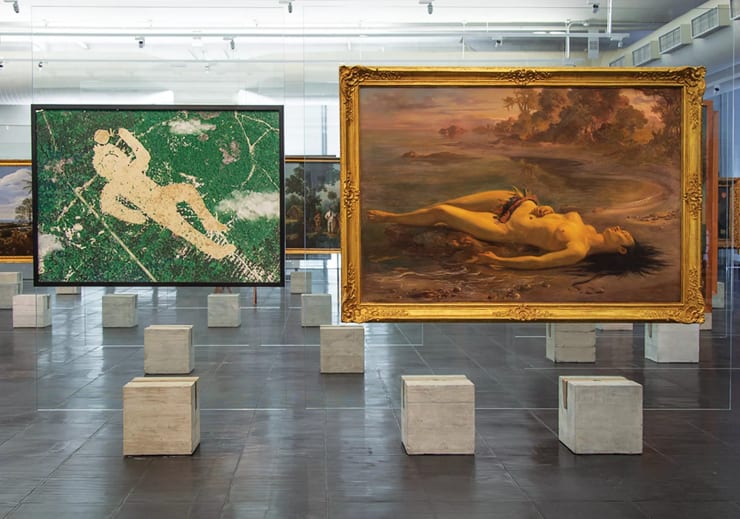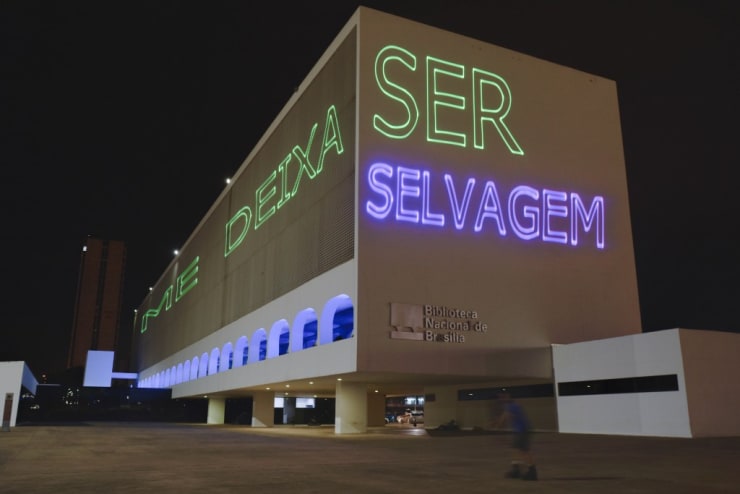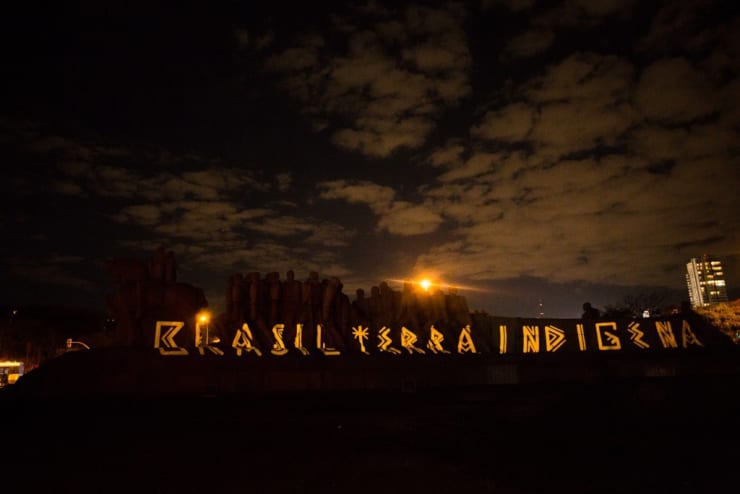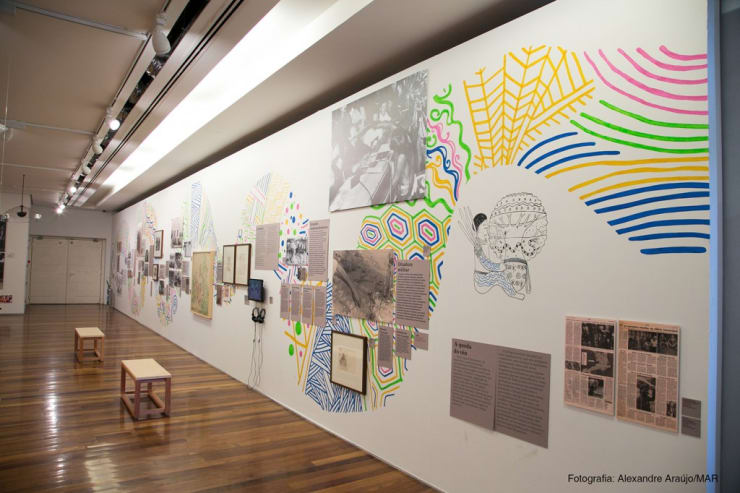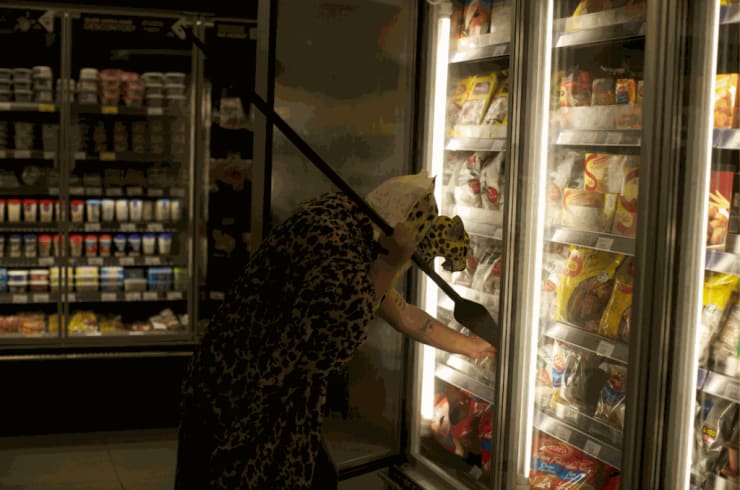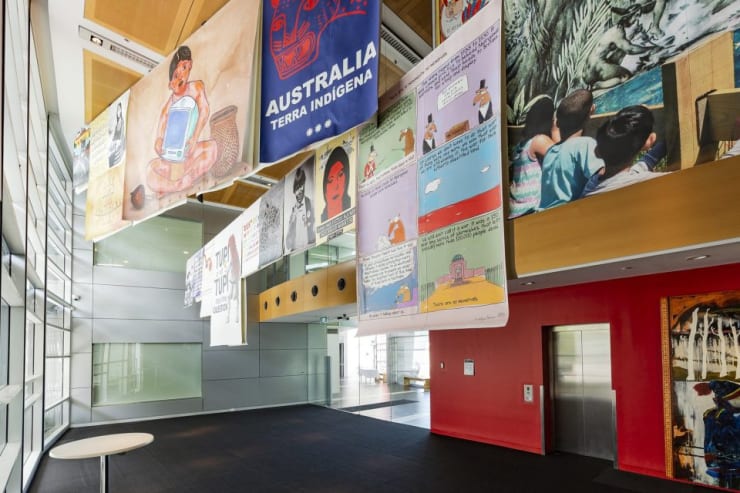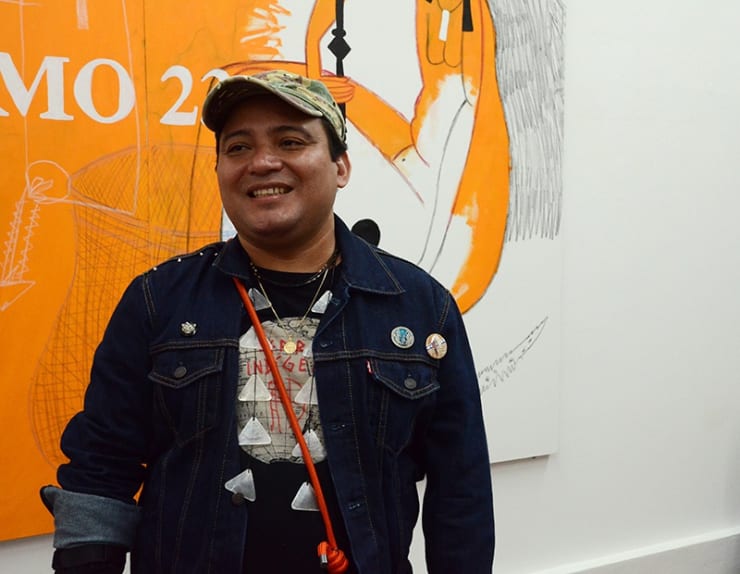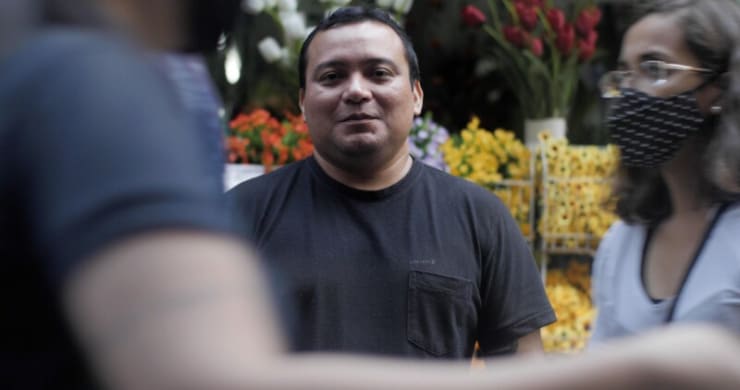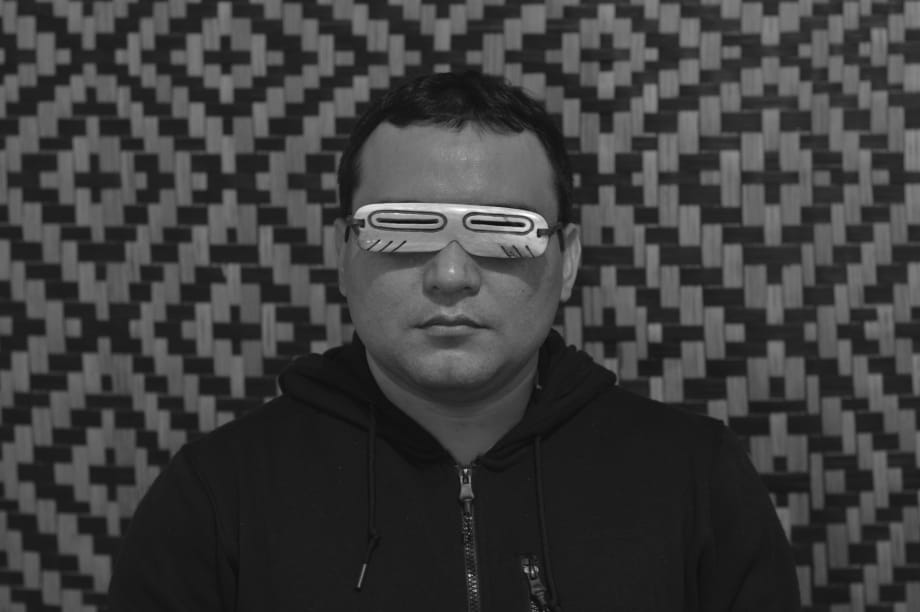Denilson Baniwa
"Denilson Baniwa narrates a specific way of occupying the hegemonic place of art, starting from the presupposition of the preservation of something unusual, immeasurable and even incommunicable. To occupy a place as sharing, without canceling differences, but, on the contrary, manifesting them as an invitation to the relationship epistemic that can transform that place that, now, seems to let itself scissor through those that had been left out."
- Renata Marquez, A Língua das Onças e das Lontras, 2020
Sometimes the challenge is not to occupy positions. When the existing ones don't work, it is necessary to create something new. Denilson Baniwa is an indigenous artist; he is indigenous and he is an artist, and his being indigenous leads him to invent other ways of making art, where processes of imagining and making are, by force, interventions in a historical dynamic - the history of the colonization of indigenous territories that we know today as Brazil - and interpellations to those who find him to embrace their responsibilities.
-

Forrobodó
9 Sep 2023 - 13 Jan 2024 Rio de JaneiroA Gentil Carioca is pleased to present Forrobodó, a group exhibition that marks the 20th anniversary of the gallery and celebrates the political, poetic, aesthetic and erotic potential of the...Read more -

Denilson Baniwa | Moqueca de Maridos
26 Aug - 23 Sep 2023 São PauloA Gentil Carioca is pleased to present Moqueca de Maridos , the solo exhibition by Denilson Baniwa at our headquarters in São Paulo. “In the ‘Husband Moqueca’ series – a...Read more -

Denilson Baniwa | Frontera
12 Nov 2022 - 21 Jan 2023 Rio de JaneiroA Gentil Carioca invites you to the opening of Frontera , Denilson Baniwa 's first solo exhibition at the gallery in Rio de Janeiro, this Saturday, November 12, from 6pm...Read more
Born in Barcelos, in the interior of Amazonas, Denilson Baniwa is indigenous to the Baniwa people. He currently lives and works in Niterói, Rio de Janeiro. As an activist for the rights of indigenous peoples, he gives lectures, workshops and courses, acting strongly in the southern and southeastern regions of Brazil and also in Bahia since 2015. In addition to being a visual artist, Denilson is also an advertiser, articulator of digital culture and hacking, contributing to the construction of an indigenous imagery in various media such as magazines, films and TV series.
In 2023, he inaugurates the solo show “Moqueca de Maridos” at A Gentil Carioca in São Paulo, participates in the 35th Bienal de São Paulo - "choreographies of the impossible", in the first edition of the Bienal das Amazônias - Belém do Pará, and occupies the octagon of the Pinacoteca de São Paulo with the installation "Escola Panapaná". In 2022, he presented his first solo exhibition at A Gentil Carioca, "Frontera", and curated the exhibition "Naokoada" at the Museum of Modern Art in Rio de Janeiro. In 2021, he presented the individual "Inípo - Caminho da Transformação" at the Goethe Institute, in Porto Alegre. In 2018, he held the exhibition “Terra Brasilis: agro is not pop!”, at the Art Gallery of the Universidade Federal Fluminense, also in Niterói, as part of the project “Brasil: A Margem”, promoted by the university. In the same year, he participated in the artistic residency of the fourth edition of the Corpus Urbis Festival, held in Oiapoque, Amapá. He has been in exhibitions at CCBB, Pinacoteca de São Paulo, CCSP, Centro de Artes Hélio Oiticica, Museu Afro Brasil, MASP, MAR and Sidney Biennale. In 2019 he won the Pipa Award in the online category and in 2021 he was one of the winners nominated by the jury.
Sometimes the challenge is not to occupy positions. When the existing ones don't work, it is necessary to create something new. Denilson Baniwa is an indigenous artist; he is indigenous and he is an artist, and his being indigenous leads him to invent other ways of making art, where processes of imagining and making are, by force, interventions in a historical dynamic - the history of the colonization of indigenous territories that we know today as Brazil - and interpellations to those who find him to embrace their responsibilities.

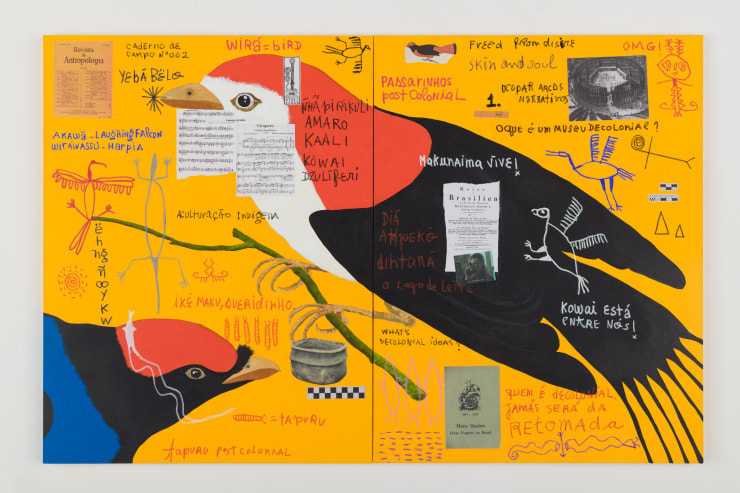

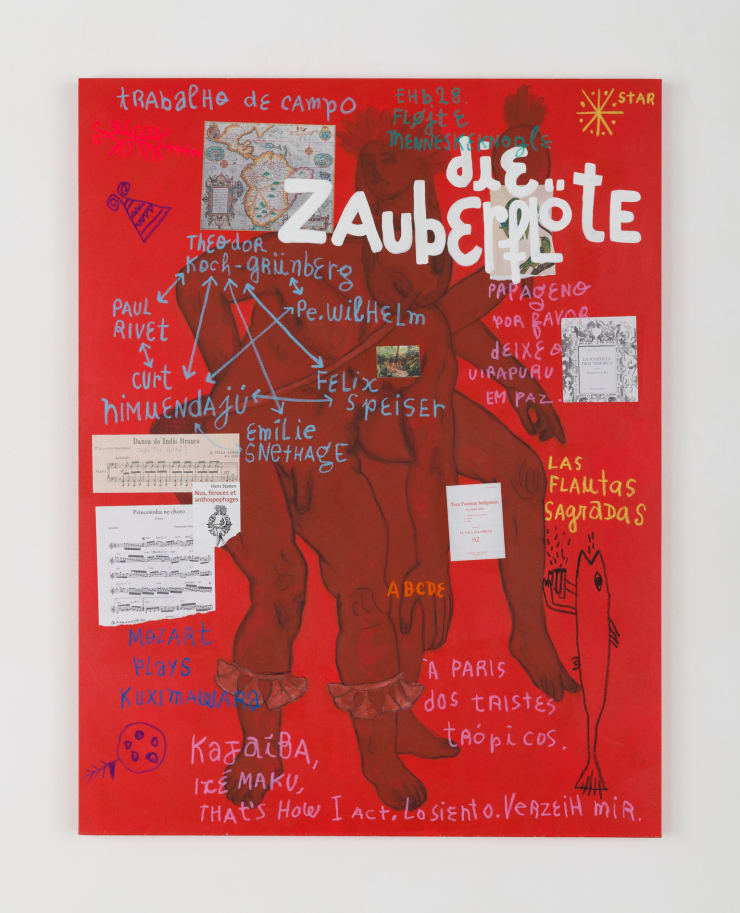
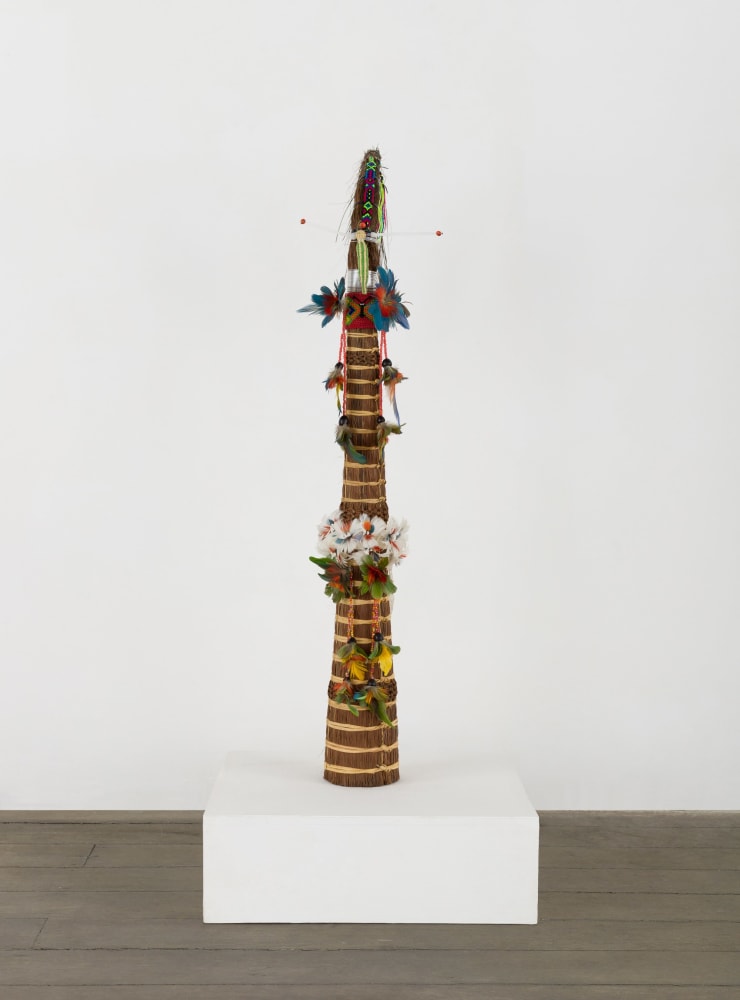



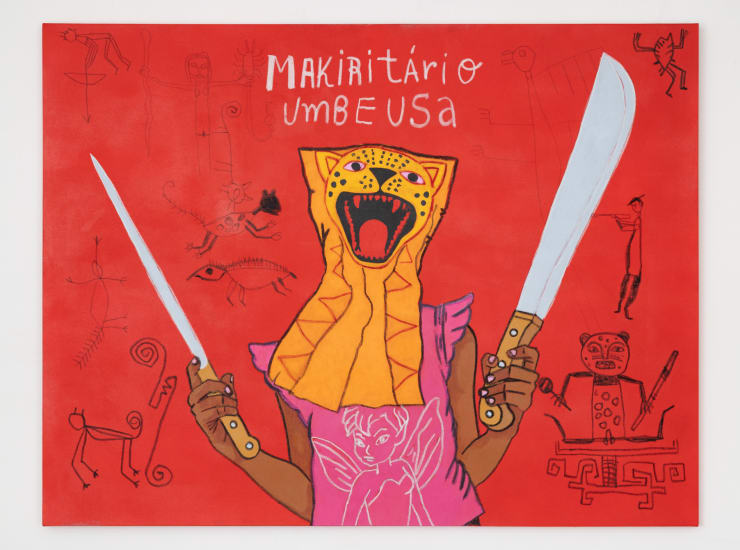
![Denilson Baniwa, Moqueca de Maridos [Lord of the Flies], 2023](https://artlogic-res.cloudinary.com/w_740,c_limit,f_auto,fl_lossy,q_auto/artlogicstorage/agentilcarioca/images/view/e05e7cb957ab171313dab55a695d818aj/agentilcarioca-denilson-baniwa-moqueca-de-maridos-lord-of-the-flies-2023.jpg)
